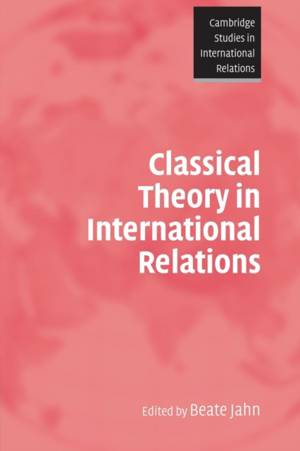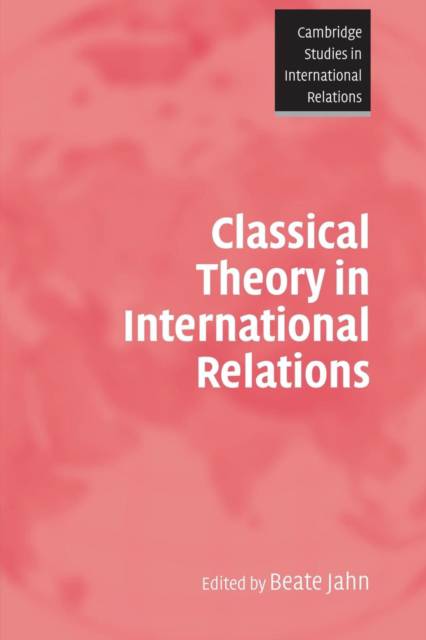
- Afhalen na 1 uur in een winkel met voorraad
- Gratis thuislevering in België vanaf € 30
- Ruim aanbod met 7 miljoen producten
- Afhalen na 1 uur in een winkel met voorraad
- Gratis thuislevering in België vanaf € 30
- Ruim aanbod met 7 miljoen producten
Zoeken
Classical Theory in International Relations
€ 60,95
+ 121 punten
Omschrijving
Classical political theorists such as Thucydides, Kant, Rousseau, Smith, Hegel, Grotius, Mill, Locke and Clausewitz are often employed to explain and justify contemporary international politics and are seen to constitute the different schools of thought in the discipline. However, traditional interpretations frequently ignore the intellectual and historical context in which these thinkers were writing as well as the lineages through which they came to be appropriated in International Relations. This collection of essays provides alternative interpretations sensitive to these political and intellectual contexts and to the trajectory of their appropriation. The political, sociological, anthropological, legal, economic, philosophical and normative dimensions are shown to be constitutive, not just of classical theories, but of international thought and practice in the contemporary world. Moreover, they challenge traditional accounts of timeless debates and schools of thought and provide new conceptions of core issues such as sovereignty, morality, law, property, imperialism and agency.
Specificaties
Betrokkenen
- Uitgeverij:
Inhoud
- Aantal bladzijden:
- 334
- Taal:
- Engels
- Reeks:
- Reeksnummer:
- nr. 103
Eigenschappen
- Productcode (EAN):
- 9780521686020
- Verschijningsdatum:
- 20/11/2006
- Uitvoering:
- Paperback
- Formaat:
- Trade paperback (VS)
- Afmetingen:
- 154 mm x 227 mm
- Gewicht:
- 544 g

Alleen bij Standaard Boekhandel
+ 121 punten op je klantenkaart van Standaard Boekhandel
Beoordelingen
We publiceren alleen reviews die voldoen aan de voorwaarden voor reviews. Bekijk onze voorwaarden voor reviews.










